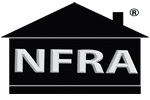Spotting cracks in your ceiling can be worrisome for homeowners in Houston. While some cracks pose no threat, others might signal deeper problems that need to be addressed. In this article, we’ll guide you through identifying the causes of ceiling cracks, evaluating their seriousness, and knowing when it’s time to reach out to us for a foundation repair estimate.
Some Common Causes of a Cracking Ceiling in Houston
Ceiling cracks can arise from several causes, including:
1. Natural Settling: Over time, homes gradually settle into the soil, which can lead to minor cracks forming in walls and ceilings.
2. Humidity and Temperature Swings: Houston’s unpredictable weather, with its sharp changes in temperature and humidity, can make building materials expand and contract, often resulting in cracks.
3. Poor Construction: Faulty building practices, such as improperly installed drywall, can contribute to ceiling cracks.
4. Water Damage: Plumbing leaks or roof issues can weaken ceiling materials, eventually leading to visible cracks.
5. Structural Problems: Larger or more severe cracks might be a sign of serious structural concerns, such as foundation settling or movement.
Evaluating the Severity of Ceiling Cracks in Your Houston Home
Not all ceiling cracks are a reason to panic. Here’s how to assess their seriousness and determine if action is required:
Hairline Cracks: These thin, narrow cracks are often caused by minor settling or fluctuations in temperature. In most cases, they aren’t a serious concern.
Straight Cracks: Cracks that follow a straight line, often along drywall seams, are usually not structural and rarely pose major problems.
Spiderweb Cracks: Cracks branching out in multiple directions might point to foundation movement. These should be inspected and might need professional attention.
Discolored Cracks: If a crack is paired with stains or discoloration, it’s often a sign of water damage, which should be dealt with immediately.
Wide or Multiple Cracks: Cracks wider than 1/16 of an inch or a cluster of cracks in one spot could indicate structural problems. These should be examined by a professional promptly.
Schedule Your Free Estimate Today!
When Should You Contact Someone for Foundation Repair
Certain issues accompanying ceiling cracks might suggest the need for foundation repairs:
Doors and Windows Sticking: Struggling to open or close doors and windows can indicate foundation movement, a common cause of structural stress.
Uneven Floors: Floors that slope or sag not only pose safety hazards but may also signal foundation settlement.
Cracks in Walls and Floors: If cracks run from the ceiling to the walls or across the floors, it could be a sign of serious structural issues requiring immediate attention.
Gaps Between Walls and Ceilings: Noticeable separations where walls meet ceilings often suggest significant shifting and the potential need for foundation repair.
If you observe any of these signs, contacting a foundation repair expert for an evaluation is highly recommended.
Steps to Take When You Notice Ceiling Cracks
Document the Cracks: Capture photos and make detailed notes about each crack, including its size, location, and any visible changes.
Monitor for Changes: Regularly inspect the cracks to see if they grow larger or if new ones appear.
Look for Additional Clues: Examine your home for other warning signs of structural issues, such as doors or windows that stick. Pay attention to uneven floors, including tiles that buckle or cause tripping hazards. If you’ve noticed yourself stumbling more often, it might not be your balance—it could be your foundation shifting.
Consult an Expert: If you’re unsure about the severity of the damage, reach out to a foundation repair professional for an assessment.
Preventing Ceiling Cracks in Your Houston Home
Maintain Stable Indoor Humidity: Use a humidifier or dehumidifier to keep indoor humidity at consistent levels, preventing expansion and contraction of materials.
Perform Regular Roof Inspections: Check for leaks and make repairs quickly to avoid water damage to your ceilings and structural elements.
Address Plumbing Issues Promptly: Fixing leaks early can help you avoid water-related damage that weakens your ceilings.
Monitor Your Foundation: Keep a close watch on your foundation for signs of movement or settlement to prevent further structural issues.
Recognizing the Signs of Foundation Problems
While many ceiling cracks are harmless, others can signal serious structural concerns. Understanding their causes and potential risks is vital for protecting your home. If you’re unsure, don’t hesitate to call in a foundation repair specialist. Companies like AAA Foundation in Houston, TX, can evaluate your home’s condition and offer free consultations to provide you with the peace of mind you deserve.

Get Your Professional Foundation Repair Today!
Call: 713-467-8981



0% Financing for 18 Months
